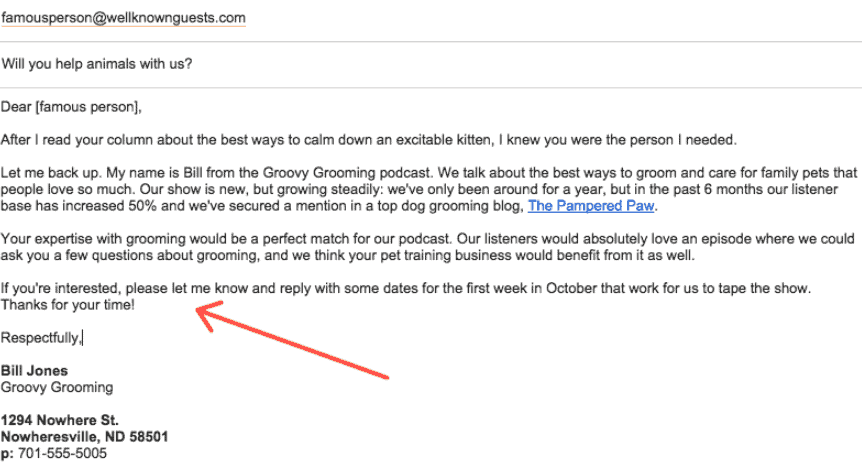Producing a quality podcast takes time and work. It’s hard to do it alone, which is why many podcasters build a team to bring in complementary skills and split up the work. Building a team is also a great way to make yourself accountable and prevent podfading. With the right tools, you can also learn a lot about project management without spending long doing so.
In this article, we’ll explain how to build a podcast team, including the different roles in a podcast team and some tips to get started.
Action
Building a podcast team? Castos provides detailed analytics, audience management tools and monetization options to help your team create and manage professional podcast content. Start your 14-day free trial
Roles in a Podcast Team
If you want to know how to build a podcast team, the first step is to understand who should be on that team. Let’s go over the typical podcast team roles. Keep in mind that you don’t need someone for each of these podcast team roles. Some people on your team can fulfill multiple roles, depending on their skills.
Producer
A show’s producer is the leader of the team. He or she oversees the entire production, executes the show’s vision, makes the hard decisions, and keeps everyone focused and organized. After putting the podcast team in place and launching the podcast, the producer’s job is to ensure the episodes are high quality and released on schedule.
Outreach manager
The outreach manager is responsible for finding people to interview for your show. They’ll hunt for thought leaders, industry experts, and anyone with a great story to tell.
In the beginning, the outreach manager will primarily send out cold emails to find whoever is willing to participate in a new podcast. They’ll send a lot of emails like this:
Over time, however, this person will build and cultivate relationships with a variety of people so there’s always a full pipeline of great guests.
The outreach manager will also need to work with the host and other content creators to determine the right topic for each guest. In many cases, guests accept or decline the invitation based on the topic.
This person’s role typically ends when they schedule a guest for an interview, although your podcast team may have this person conduct a bit of research on the guest for the writers and host (or at least pass on whatever they learned).
Show host
The show host is the face of the show (well, the voice of the show). They’ll handle the bulk of the recording. This person should be personable, charismatic, insightful, and capable of building a rapport quickly with your guests. Naturally, they should have a semi-pleasing voice for audio.
One of the most overlooked qualities you need in a show host is stamina. It’s tough speaking for a long period of time while maintaining good vocal control, cadence, and interest, especially if your host needs to control the quality and flow of a conversation with a guest.
Writer/editor
If you hoped to start a podcast to avoid writing, think again! Someone needs to prepare notes for the recording or possibly write a script. If you like to read a script word-for-word, you’ll need to prepare 4,000-5,000 words per episode. Some of the biggest podcasts use multiple writers for each episode.
Once the episode is published, you’ll need a writer to prepare show notes and an audio transcription. These are key elements of your episode’s page on your podcast website that help with SEO, accessibility, and audience growth. It looks something like this:
Finally, someone will have to write social media posts, newsletter copy, click-worthy headlines, episode descriptions, and ad copy (if you buy ads). If you like to blog as well (which we recommend), you’ll need someone to craft those posts.
Voice over specialist
Depending on the nature and format of your show, you may choose to record your ads, intros, and outros in someone else’s voice. Sometimes this elevates the production level of the show.
In this case, you’ll need a voice over specialist. This person doesn’t need to be a regular part of your team. You’ll just need to hire them for the occasional job whenever you need a recording.
Graphic designer
Promoting a podcast requires lots of marketing assets you can share around. Here’s just a sample of some of the items you’ll need:
- Social media images
- Newsletter images
- Podcast cover art / logo
- Quote images
- Charts/graphs
- Audiograms
- Headshots of guests
Additionally, you may have unique needs. For instance, a news podcast may want to show images from recent events in a blog post, in which case you’ll need a designer to source, touch up, and resize photos.
Audio engineer
The audio engineer’s role on a podcast team is to turn the raw recording into a polished episode. He or she will tune, mix, adjust levels, remove background noises, edit out the “uhhs,” “umms,” and awkward pauses. If you’re conducting an interview over recording software, the engineer will make the sounds match.
This person will also arrange your show by adding intros, outros, ads, and any other segments. They might add sound effects, background music, or other clips.
Coordinator
This is a catch-all podcast role that includes all of the little one-off and everyday tasks you’ll need handled to launch the podcast and keep it running. While it’s true that anyone can perform this role (it doesn’t require special skills), it’s still extremely important.
The coordinator must be focused, organized, and always thinking ahead. Their role casts a wide net, so they must be comfortable learning new things every day.
- Setting the up podcast website.
- Publishing contents to the website.
- Distributing the show to as many podcast directories as possible, such as Apple Podcasts, Spotify, and Google Podcasts.
- Uploading new episodes to your podcast host.
- Scheduling social media posts and engaging with fans.
- Sending notification emails whenever a new episode is available.
Action
Read to start your own podcast? Learn the nitty-gritty details of starting your own show in our comprehensive guide. Learn how to start a podcast.
Do You Need all of These Podcast Positions?
When customers ask us how to build a podcast team, they’re often worried that they need a separate person for each of these podcast roles. That isn’t the case.
Many shows start with just two or three people filling all of those positions. Sometimes a single person will start a show and do everything themselves. As you grow, you can add people to your podcast team based on your needs.
If you’re a small team, it makes sense to outsource some of the tasks that don’t align with your strengths. For instance, if you aren’t a good graphic designer, pay someone to make your visual assets when you need them. If you don’t have the technical skills to edit a podcast, use a podcast editing service to handle it for you.
Need to outsource some important podcasting tasks? Set your podcast on autopilot with Castos Productions. We take care of everything so you can focus on creating great content and growing your audience.
How to Build a Podcast Team: 5 Tips
Now that you know who should be on your team, let’s talk about actually putting it together.
1. Prepare to do as much as possible yourself
Unless you’re well funded, it’s best to do as much as possible yourself in the beginning. But this doesn’t just save money. It also helps you understand each facet of your show – what looks and sounds good, what steps are involved, how much time each task takes, etc.
For instance, finding guests may require more work than you expect. It’s important to do this for a while yourself so you can develop a process for whomever you hire in the future.
2. Bring people on in exchange for equity
You probably won’t have the funds to pay full time (or even part time) salaries, so it’s best to create a team that owns part of the show. We’re talking equal shares here, not little pieces. If you start a show with three people, for example, everyone should own a third.
3. Choose people with the right skill sets
Ideally, anyone you include on your podcast team will have experience in podcasting or in your niche. The more experience you have on day one, the easier and faster you’ll start producing episodes.
Furthermore, look for people with complementary skills. If you’re a great speaker, choose a co-host who asks great questions. If you know the technicals of producing an episode, find a creative person who can write and design.
4. Set the ground rules early
It’s important to lay out the rules so everyone knows how they will be expected to behave. For instance, you might tell everyone that nothing gets published without your approval. Or you might define what your outreach manager can offer potential guests.
Most importantly, be absolutely clear about compensation. If you get vague with how people will be paid, you are sure to create conflicts in the future.
5. Create a system to facilitate collaboration
There are a lot of pieces involved in putting together a podcast episode. It’s easy to lose some in the shuffle. You don’t want to publish the episode page on your site without show notes, or forget to announce it to your followers.
Use a project management tool like Trello, Asana (or Asana alternative), or Monday to keep your team organized. Give everyone an account with the right permission. Create projects, assign people to them, and declare due dates. This will keep everyone organized and accountable.
Your Podcast Production Team
Our last piece of advice on how to build a podcast team is this: Do it your way. No two teams are alike. There’s no one-size-fits all approach here. You might work with a friend because you’re both passionate, even if neither have the right skills. You might hire someone to fill a completely one-of-a-kind position because it’s important for your show. Your podcast team will be unique because your show is unique.
image courtesy of https://www.lesfinances.ca/
Get Started With Castos Productions
Let our team of audio engineers, writers, and marketing pros take care of the entire post-production process of your show.






Comments are closed.